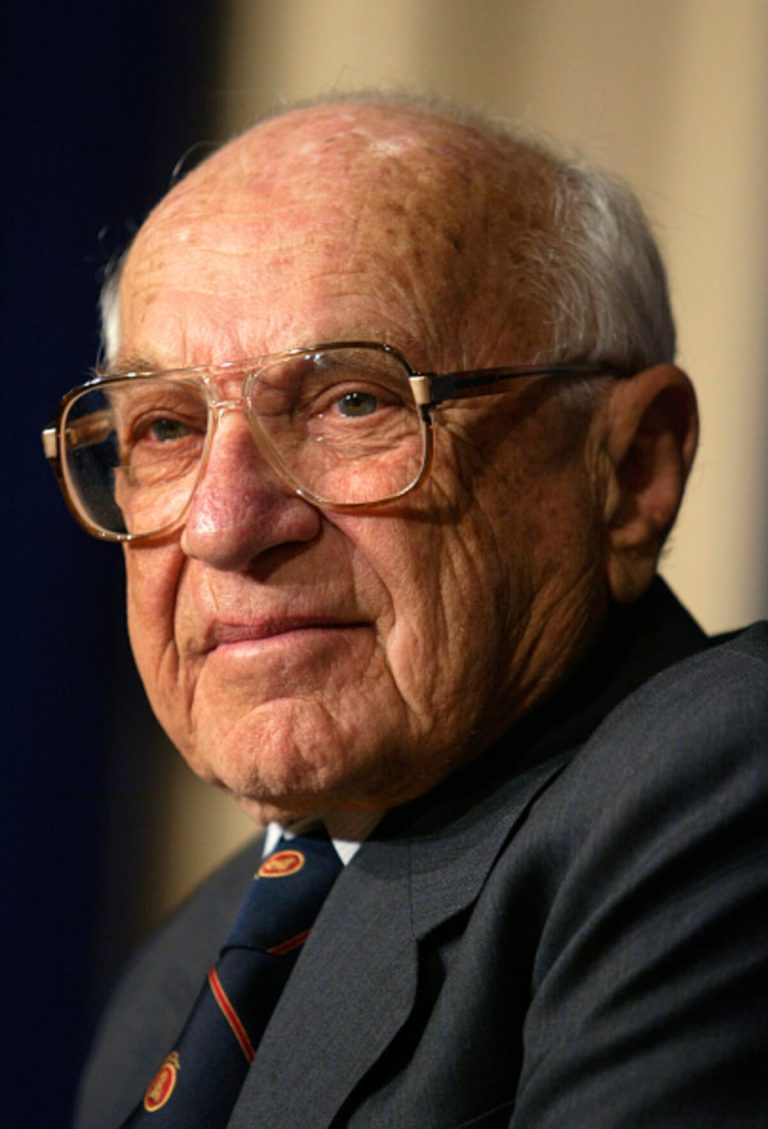Date of Birth: July 31, 1912
Zodiac Sign: Leo
Date of Death: November 16, 2006
Biography
Milton Friedman was an American economist and statistician who became one of the most influential figures in the field of economics in the 20th century. Born on July 31, 1912, in Brooklyn, New York, Friedman is best known for his work in the fields of macroeconomics, microeconomics, economic history, and statistics. He was a leading proponent of the Chicago School of Economics, which advocated for free-market policies. Friedman earned his Bachelor’s degree from Rutgers University in 1932, where he was influenced by economist Arthur Burns. He then went on to receive his Master’s degree from the University of Chicago in 1933 and his Ph.D. from Columbia University in 1946. During his illustrious career, Friedman made significant contributions to the theory of consumption, monetary history and theory, and the complexity of stabilization policy. One of his most famous works is “A Monetary History of the United States, 1867–1960,” co-authored with Anna Schwartz, which argued that poor monetary policy was a primary cause of the Great Depression. His ideas on monetarism, which emphasized the role of governments in controlling the amount of money in circulation, were influential in shaping economic policies in the late 20th century. Friedman was awarded the Nobel Memorial Prize in Economic Sciences in 1976 for his research on consumption analysis, monetary history and theory, and the complexity of stabilization policy. He was also a prolific writer and public intellectual, contributing regularly to newspapers, magazines, and television programs. His book “Capitalism and Freedom,” published in 1962, remains a seminal work advocating for free-market capitalism and limited government intervention. Friedman passed away on November 16, 2006, but his legacy continues to influence economic thought and policy around the world.
5 Interesting Facts about Milton Friedman
1. Milton Friedman served as an economic advisor to President Ronald Reagan and British Prime Minister Margaret Thatcher.
2. He was an advocate for the abolition of the military draft, which he believed was an infringement on individual freedom.
3. Friedman’s television series “Free to Choose,” co-created with his wife Rose Friedman, brought his economic ideas to a broader audience.
4. He was a staunch opponent of Keynesian economics, which dominated economic policy in the mid-20th century.
5. Friedman was a strong advocate for school choice and voucher programs, believing they would improve the quality of education through competition.
5 Most Interesting Quotes from Milton Friedman
1. “There is nothing so permanent as a temporary government program.”
2. “Inflation is always and everywhere a monetary phenomenon.”
3. “The government solution to a problem is usually as bad as the problem.”
4. “One of the great mistakes is to judge policies and programs by their intentions rather than their results.”
5. “The only relevant test of the validity of a hypothesis is comparison of prediction with experience.”
Highest Net Worth Achieved
Milton Friedman’s highest net worth is not well-documented, but he earned substantial income through his academic positions, writings, and advisory roles.
Children
Milton Friedman and his wife Rose Friedman had two children: Janet Friedman, who became a distinguished economist, and David Friedman, who is a well-known economist, physicist, and libertarian theorist.
Relevant Links
3. [Milton Friedman on Britannica](https://www.britannica.com/biography/Milton-Friedman
5. [Hoover Institution Profile](https://www.hoover.org/profiles/milton-friedman


